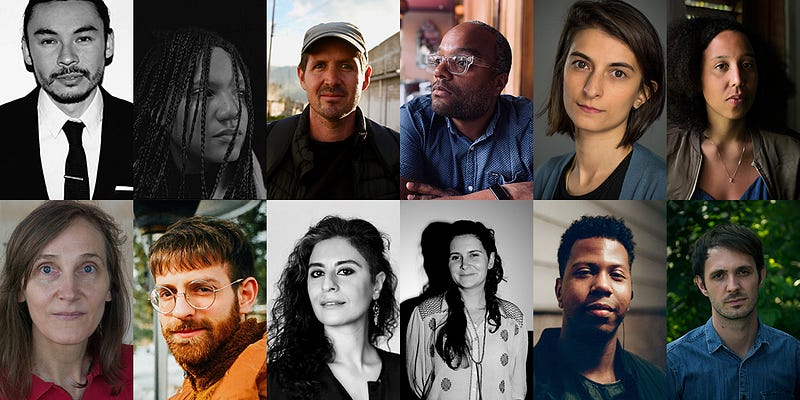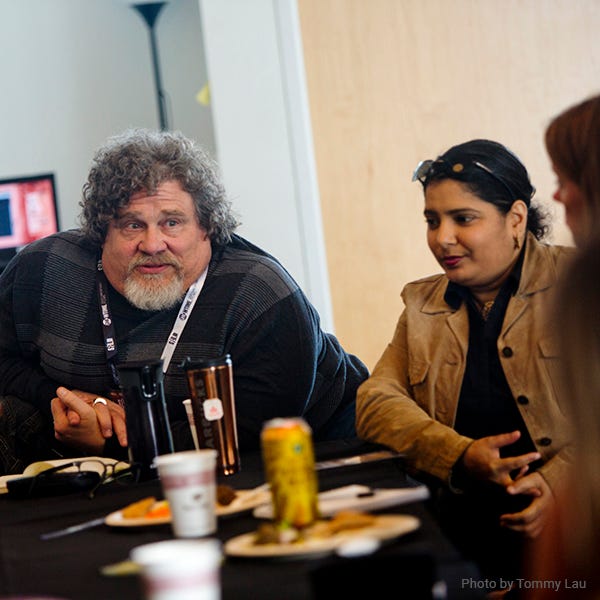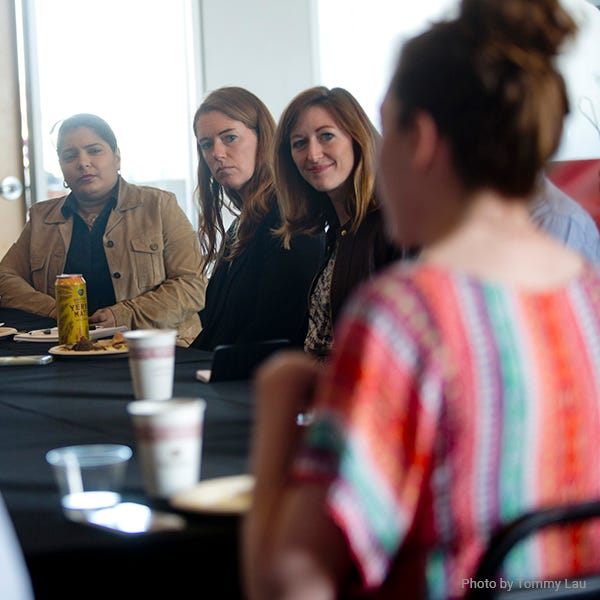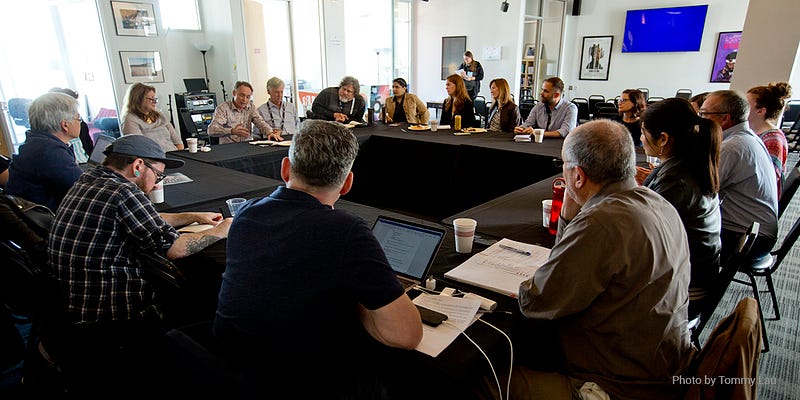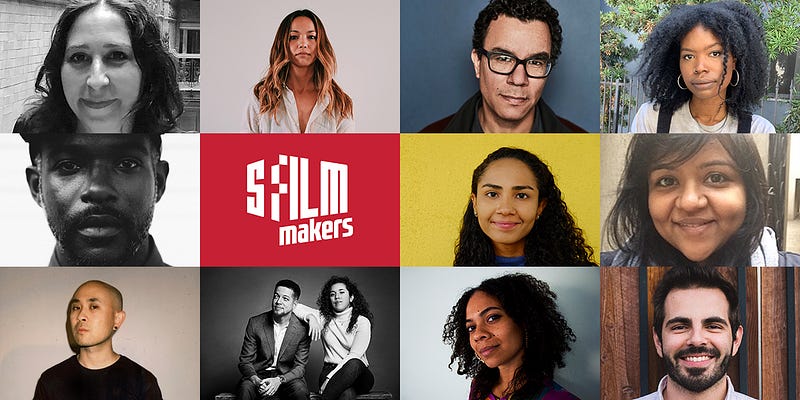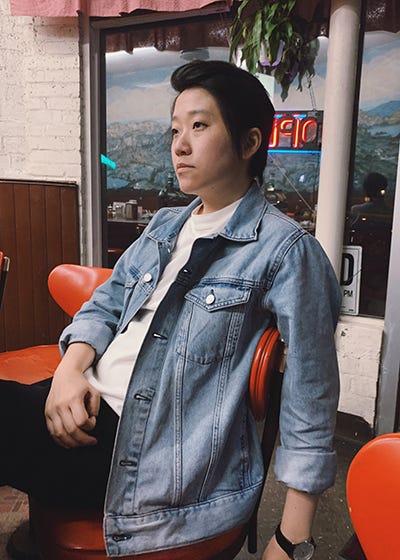Nellie Wong Magic of Movies Education Fund Essay Contest: Read the Winning Submissions
Nellie Wong Magic of Movies Education Fund Essay Contest: Read the Winning Submissions

Originally scheduled to screen in the Family Films shorts program at the 2020 SFFILM Festival, Camrus Johnson’s animated short film Grab My Hand: A Letter to My Dad was shown online as part of SFFILM at Home on April 23. Johnson charmed the virtual audience with an engaging Q&A that explored the creative process, directed toward youth storytellers.
Following the event, SFFILM Education and the Nellie Wong Magic of Movies Education Fund invited elementary, middle, and high school attendees to participate in an essay contest inspired by the online discussion. Students were asked to respond to the following writing prompts:
1. How did Grab My Hand: A Letter to My Dad and online Q&A with Camrus Johnson make you feel?
2. How do you feel in general right now?
3. During this difficult time, how are you staying connected to the people you love?
4. Are you staying creative while sheltering in place?
The SFFILM Education team and director Camrus Johnson reviewed all of the submissions, and we’re excited to present the winning essays.
Winner: Daphne Neel (Franklin High School)
TURNING AROUND
Nobody ever realizes what they have until it’s too late. We assume that everything and everyone is going to be “ok” because we don’t want to believe that they’re not. We can stay close to people even if we don’t talk. We can believe in something, even if we can’t see it. We’re capable of all these things, all these thoughts, and yet we don’t like to accept what’s there. Everybody gets scared. Everybody tries to ignore the signs, even when they’re right in front of you.
In watching Camrus’ film, I realized that not everything is going to turn out like you thought, and not all heroes last forever. Expressing your feelings is hard. You want to ignore them, and you want to act like everything is ok, because we don’t like facing the truth. The truth is so strong, so powerful, it keeps a hold on us. It weighs us down because we allow it to. Why? Because of fear? Because we thought that if we could ignore just long enough, that would make it a dream? It’s not a dream anymore; it’s a nightmare. A nightmare that we want to escape, a reality we don’t want to face, but everything catches up to us.
No matter how long we run, we will never escape what we don’t want to see: the truth. We’re not ok. We’re not. But what’s so wrong about admitting it? You aren’t weak; in fact, you’re strong enough to realize that no, things aren’t perfect. Nothing is going to play out the way you wanted it to, and you don’t know how long the things you have are going to last.
Instead of being scared, instead of running away, turn around. Turn around and face what is going to catch up to you, because facing it yourself will only make you fall, while running away will pull you down. Everybody trips over their shoelaces, but you need to decide whether you’re going to tie them before you get back up. Anyone and everyone can decide to be a hero, but your heroes aren’t there to solve your problems, they’re there to support you and to encourage you to get back up. They can help you fight off the battles, but they won’t fight your war. You might need your heroes, but your heroes need you too. So, are you going to run again? Or are you going to let the truth drag you down before you decide enough is enough?
Runner-up: Thalia White (Live Oak School)
ART TO SPREAD A MESSAGE
When I saw the short film Grab My Hand: A Letter to My Dad by Camrus Johnson, it really impacted me. The film was beautiful in a way that would make anyone watching feel deeply connected to Camrus and his story. As I watched and later heard Camrus talk about the film, it became clear he created this art to help his father and the people in similar situations feel heard and understood. The idea of creating art to help people through their pain is astonishing, and Camrus shows it through this beautiful film. But the reason this message is so meaningful to me is because of how much it connects to me personally.
Now, let’s go back to the summer of 2019.
Near the end of August, I was talking to my mom, and she told me about something that would change my life: The Butterfly Effect. The Butterfly Effect was a change-making group of kids around my age in the Bay Area — their mission: to change the world for the better. Their main goal — to free the children at detention centers on the border. And their project? To create forty-two thousand paper butterflies to represent each of the 42,000 children that were separated from their families at the borders. They chose butterflies because, as we say, “butterflies teach us that migration is beautiful.” They hoped to use these butterflies to create massive displays of stunning artwork that would hang in public buildings to spread awareness for the cause.
When I learned about this organization, I knew that I had to join their impactful cause and be a part of their vision. I had felt a lot of pain and fear when I learned about the detention centers at the border, and I wanted to turn that fear into hope. I immediately reached out to their leaders to ask if I could help collect and display butterflies. They agreed, and by the next week, my friends and I had started helping lead the effort in SF, and began collecting butterflies at our school. We worked with our library to host events and talk at school assemblies. In less than a month, the four girls and I had collected and strung two thousand paper butterflies and shipped them to the team in Oakland. The Butterfly Effect project was becoming a lot more known around the world, and we were so glad we could do our part. Then, in January, The Butterfly Effect got a display of fifteen thousand butterflies in the Rotunda of one of the Senate buildings in DC, And at the center of the display was my two thousand butterflies, distinctively arranged in a vibrant rainbow of color. Along with that, we would be going to DC to personally deliver butterflies to US Senators and to talk to key government officials such as House Speaker Nancy Pelosi. I remember walking through the halls of all those important buildings, feeling like I had a real voice. The most inspiring thing I was ever told was when a Congresswoman Jackie Speier from California told me “To others, we seem like very important people, but really, we work for the whole country. The people of the country are the real bosses.” That influenced me to realize that I could and was making a change in the world.
Even now, we continue to work hard on spreading our message to the world, meeting weekly over zoom even while in quarantine, including making two PSA’s that have been seen and heard by a total of 6 million people. The Butterfly Effect group started as one girl who wanted to make a difference. But kids around the world have come together to make a big change through one artistic vision.
Just like Camrus did in his film, I found making art to help people to be a wonderful and powerful experience that helped bring people together during their most challenging times. I learned a lot about myself and the world, and that one small intention from the heart can make a big difference.
— — — — — — — — — — — — —
Learn more about SFFILM Education at sffilm.org/education.
